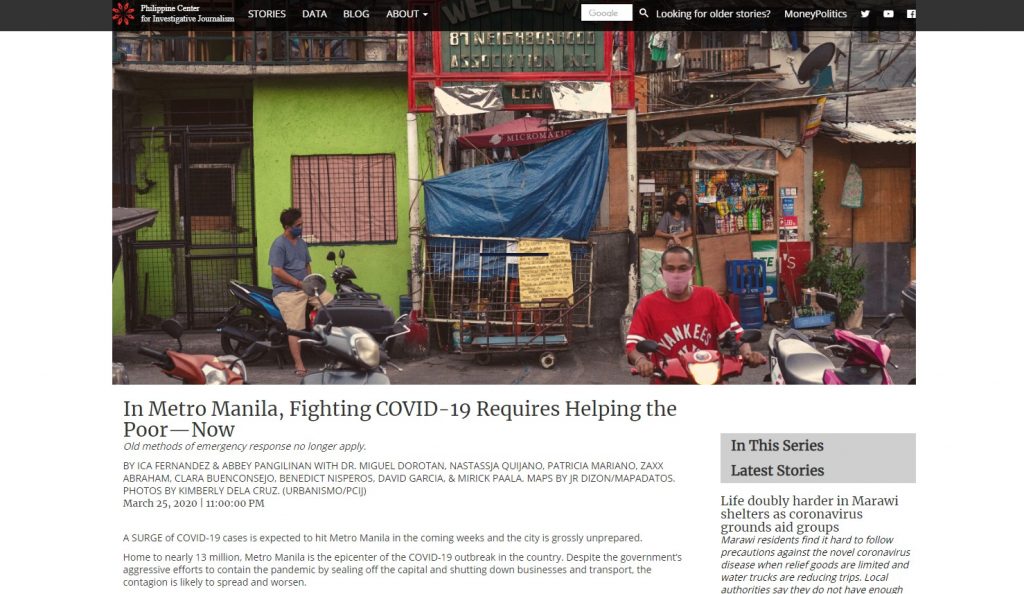From PCIJ: Big data and a key response to COVID-19

GOING BEYOND episodic news stories, PCIJ highlights a key response in fighting COVID-19.
CMFR cheers the Philippine Center for Investigative Journalism (PCIJ) for a report posted on March 25 that collects crucial information from big data to stress the need to assist the poor of Metro Manila. The account was based on a study prepared by UrbanisMO, a group of urban planners and development professionals, with support from and in cooperation with PCIJ.
Citing data from the Department of Health (DOH), the report lays out the vulnerable state of the country’s health system, charting the shortage of doctors, nurses and medical workers. The account also points to the serious lack of ventilators in the entire country, drawing from survey data from the Philippine College of Physicians. Global estimates show that three to five percent of COVID-19 patients require such life-saving device, PCIJ noted.
Emphasizing that “poor living conditions trigger various health issues”, the account warns that the spread of infection in dense communities “will be impossible to manage and contain.” The article zeroed in on key issues: more severely limited access of the poor to food, health services and public transportation, along with lack of sanitation and sewerage in slum areas.
Maps accompanying the article visualize the urban reality that flies in the face of measures imposed by government to control the spread of the disease: lockdown of cities, quarantine and social distancing do not apply where most of the people live. It also shows how the poor suffer most from the scarcity and inaccessibility of hospitals and shortage of means to travel the distance from their home to hospitals, pharmacies and markets.
The maps visualize the widespread poverty in Metro Manila, illustrating official data from government offices, including the Department of Social Welfare and Development (DSWD), the Philippine Statistics Authority (PSA) and the National Mapping and Resource Information Authority (NMRIA).
The article ends with a rundown of recommendations, some of which have already been initiated by various government agencies, citizen and business groups. As the Inter-Agency Task Force for the Management of Emerging Infectious Diseases (IATF-EID) and the private sector seem agreed to extend the lockdown period, joint public and private efforts should concentrate on improving efforts to help the poor. This includes ensuring food security of poor communities and building an information system that helps them deal with the emergency, as well as expanding the mobility of frontline services and health workers, among others.
News accounts on the COVID-19 pandemic in recent days have reported the effects of the crisis on the urban poor, focusing on those left out of government’s distribution of relief goods and cash aid. PCIJ has broken away from the limitations of conventional news and draws the big story contained in the information stored by different government agencies. The overview should now serve as a shared reference for the policy-making and the media.
Leave a Reply